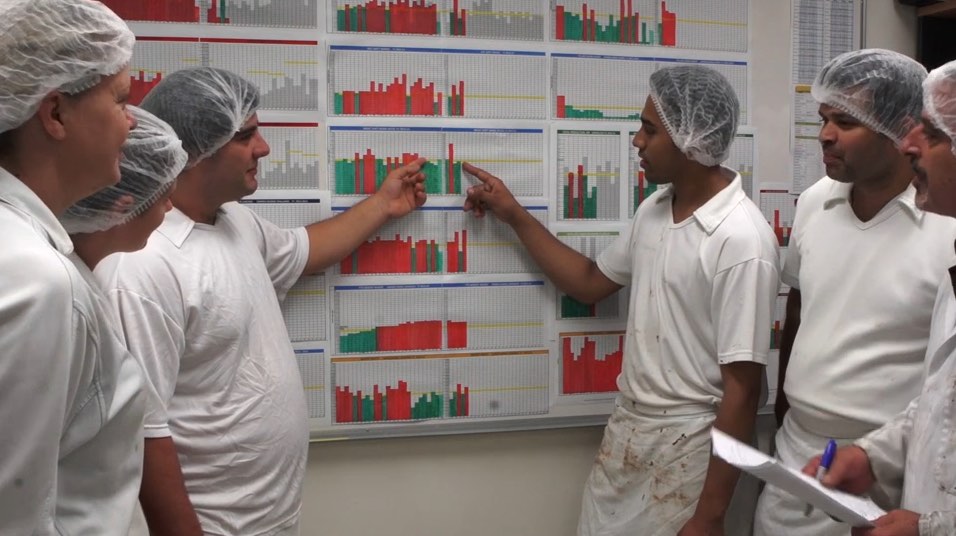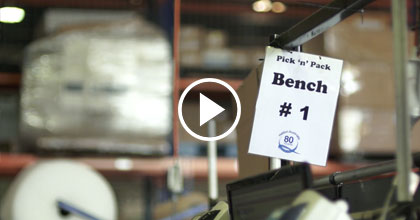Daily Team Meetings: Keeping Them Effective

The Lean Daily Leadership Process outlines the need for a 10-minute daily meeting to help your departments/teams understand each others workloads and general mood for the day. It has the ability to help your teams work through problems or issues they may have faced the previous day or are likely to encounter that day. Read below for tips on keeing your daily team meetings effective and productive.
Here a some tips to improve your daily team meeting even if the shift starts at 6:30am on a cold, wet day in the middle of winter:
- Stick to the agenda for the meeting:
- Attendance, safety, quality, performance, concern strips and good news storys.
- Have a time keeper, a scribe and a presenter:
- You can rotate these jobs as the team matures
- Always Prepare:
- Little preparation leads to a slower paced meeting – update the information boards before the meeting starts.
- Stay on message:
- What did you do yesterday?
- What are you planning to do today??
- Use the 10 minutes effectively:
- Create the expectation that the team knows that the stand-up meeting starts on time and would not wait for late comers to arrive.
- Be Short and Sweet:
- This is not the time to recount everything that occurred in last shift and and it is the not place to solve complex problems.
-
- Take larger issue outside the meeting into the appropriate forum such as a one on one or the quality meeting.
- Make the meeting Fun:
- Where teams have an environments where it can be fun, the daily meeting run a little better. It is the space to develop the game plan for the day.
- Making it fun will produce a more energising and productive atmosphere where the team stay engaged
- Include a good news story about the factory or team members.
Daily team meetings start off with great level of enthusiasm and vigour when first implemented; however it doesn’t last too long after the first couple of weeks. The members may become bored and disengage from the purpose of the meeting. The forming of any team takes time. We can expect it will follow through the stages of Tuckman’s team development model of Forming – Storming – Norming – Performing. A team develops throughout these stages and they need to be allowed the time to step through these stages.
To keep these meetings effective the engagement has to be high; Focus on the core of the daily meeting to provide the forum to communicate information about safety, quality, delivery, performance and morale. Being like a coach instructing his team before a match as it is vital to achieve result in the the upcoming match or shift.
The signs that a team are not enjoying the meeting are members are not looking at the team leader, the distance between team leader and team members is increasing and a lack of discussion. Commonly the feedback from team leaders, after a few week for running daily meetings, is “whilst the guys and girls are keeping up appearances at morning meetings there is a real lack of enthusiasm amongst the group.” If you follow the above steps you won’t need to worry.





